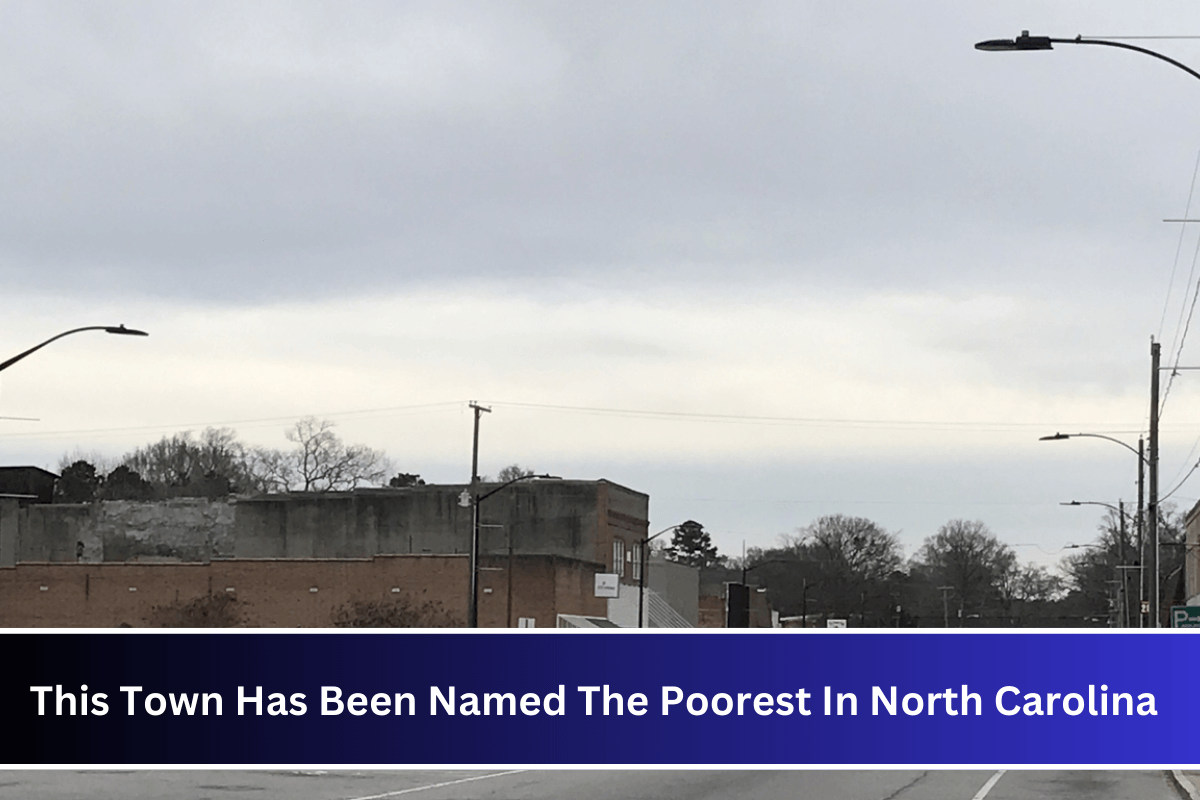Scotland Neck, a small town in eastern North Carolina, has been designated as the poorest town in the state. With a population of approximately 1,861 residents, Scotland Neck faces significant economic challenges.
The town’s median household income is notably low, reported at around $17,271 in 2022, reflecting a modest increase from previous years but still far below the North Carolina state average of about $60,516.
This economic situation is compounded by a high poverty rate; approximately 45.4% of the population lives below the poverty line.
Historical Context
Founded in 1722 by Scots Highlanders, Scotland Neck has a rich history tied to agriculture and manufacturing.
The town was incorporated in 1867 and thrived for many years due to local industries, including the Halifax County Hosiery Mill, which operated until 1996.
The decline of these industries, along with the mechanization of agriculture and outsourcing of manufacturing jobs, has contributed to the economic stagnation experienced today.
Demographics and Economic Indicators
The demographic makeup of Scotland Neck is predominantly Black or African American (approximately 69.5%), with White residents making up about 29%. The town does not have a significant number of non-English speakers, indicating a relatively homogenous linguistic environment.
. The median property value in Scotland Neck is around $68,100, with a homeownership rate of 44.3%, which further illustrates the economic difficulties faced by residents.
Community Initiatives and Challenges
In recent years, local leaders have recognized the need for economic revitalization and have begun implementing strategies to attract tourism and support small businesses.
Initiatives include improving access to natural resources like the Roanoke River for outdoor activities such as fishing and hunting, which are already popular among visitors.
Furthermore, the town has experienced population decline over recent years, which can exacerbate economic issues as fewer residents contribute to the local economy.
Future Prospects
Looking ahead, Scotland Neck’s future will depend on its ability to leverage its unique resources and community spirit to foster sustainable economic development.
By focusing on tourism and small business growth while addressing systemic poverty issues, there is potential for revitalization.
However, significant investments in infrastructure and education will be crucial to creating long-term change.In conclusion, Scotland Neck stands as a poignant example of the economic struggles faced by many small towns in North Carolina.
With concerted efforts from local leaders and community members to address these challenges through innovative strategies and support systems, there may be hope for a brighter future for this historically rich yet economically challenged town.
Sources
- https://datausa.io/profile/geo/scotland-neck-nc
- https://www.sog.unc.edu/content/scotland-neck-north-carolina
- https://datausa.io/profile/geo/scotland-county-nc
- https://fred.stlouisfed.org/series/S1701ACS037165
- http://censusreporter.org/profiles/16000US3759780-scotland-neck-nc/











Leave a Reply